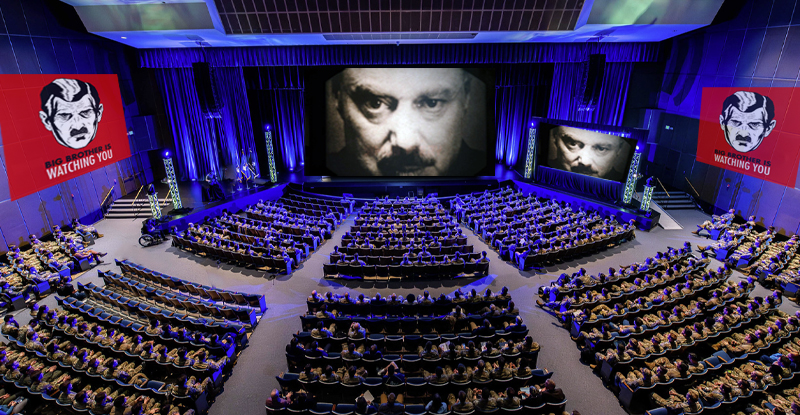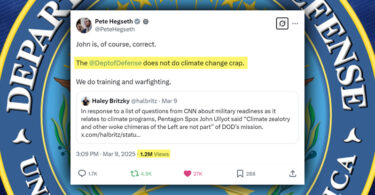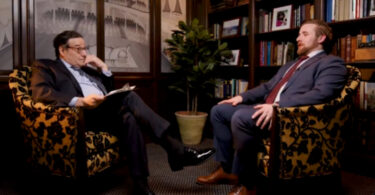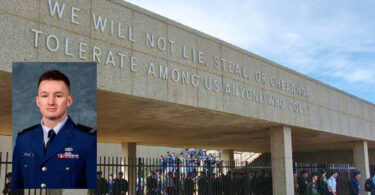By Will Carless | USA Today
After years of internal and external alarms that the military isn’t doing enough to address hate and extremism, an obscure federal contract may suggest a new approach: monitoring the social media of Air Force Academy cadets, staffers − and anyone else around the campus.
Last month, the Air Force struck a contract for digital monitoring to identify hate speech, cyberbullying, sexual harassment and extremism at its Colorado Springs academy.
The goal is to “combat cadet conduct in digital mediums that has the potential to negatively impact culture and climate.”
Monitoring the posts of the more than 4,000 cadets aligns with efforts elsewhere to screen disinformation and hate speech; other universities plus police agencies and many employers make comparable efforts.
But the contract’s extension to the campus community led some experts to raise concerns about whether the effort could violate privacy for military or civilian users.
And while Air Force Officials say there are no plans to replicate the program elsewhere in the military, experts on surveillance worry about the contract’s open-ended wording and sweeping focus.
At $273,500 total, it’s unclear just how far-reaching the effort will become.
The contract focuses mainly on a social media system used at the school but requires that monitoring shift to other major platforms such as YouTube or TikTok if misconduct shifts to those areas. The contractor, Miami Beach-based 3Gimbals LLC, did not respond to requests for comment.
The program came as a surprise to experts on extremism in the military, including Bishop Garrison, who led a Pentagon working group that made more than 20 extremism-related recommendations for the armed forces in 2021.
“This is not something we covered, and it’s not something I’ve ever heard about happening in the military,” Garrison said.
Referencing the constitutional protection from unreasonable searches and seizures, he added: “I think this will need to be thoroughly reviewed because it has the potential to be a Fourth Amendment issue and may potentially infringe on key privacy protections.”
The social media monitoring contract, which will last one year with a possibility to extend another six months, was awarded Feb. 13, according to the federal government’s System for Award Management website.
The effort is part of “a larger cultural concern at the Air Force Academy that is captured under a larger campaign,” said Thomas Torkelson, deputy director of the Air Force Academy’s Center for Character & Leadership Development, who leads the program.
The goal of monitoring social media is to educate cadets, prevent them from spreading harmful material online and respond when someone is posting content that academy leaders consider harmful to the base’s culture, Torkelson said.
That includes identifying people who post inappropriately and, if necessary, holding them accountable for any criminal activity witnessed by the monitoring company, he said.
Ryan Shapiro, executive director of the open-government group Property of the People who holds a doctorate from the Massachusetts Institute of Technology focusing on government surveillance, said he’s particularly troubled by the scope and scale of the Air Force Academy’s new contract.
Public documents outlining the program are not precise about who, or what, will be monitored, he said.
Monitoring is primarily focused on an anonymous hyperlocal social media site called Jodel, which people on and around the academy can use to make public posts, similar to Reddit. Jodel did not respond to a USA TODAY inquiry about the monitoring effort.
But the contract also allows for the monitoring of “other social media platforms,” according to its Performance Work Statement.
The program also is ostensibly aimed at monitoring the social media activity of cadets, but Torkelson acknowledged that anybody using Jodel or any other social media in the geographical vicinity of the academy also could be targeted.
“The program’s expansive scope reeks of calculated ambiguity,” Shapiro said.
“It appears custom-made to serve as a vehicle for the policing of dissent, not just of military personnel but also the broader public. “That’s deeply disturbing.” . . . .
. . . . The contract for the Air Force doesn’t just cover monitoring. It also calls for training modules for senior academy staff to teach cadets about social media use.
The training should be for 18- to 24-year-olds and focus on all social media platforms, “geared towards 18-24-year olds’ online conduct on all social media platforms,” the Performance Work Statement says, and will be used by about 4,400 cadets.
Torkelson said the training element is a key reason for the social media monitoring. The idea is for 3Gimbals LLC to spend a year tracking what cadets and staff post online, then use the company’s findings to craft its training sessions, two of which will be held throughout the year, he said.
“It’s not about policing, it’s not about rooting out bad actors,” he said. “It’s about educating the entire population on what being a leader of character looks like.”
Shapiro was skeptical.
There are plenty of organizations and companies that already provide social media training for establishments like the Air Force Academy, he said. Indeed, the academy already has an extensive social media guide for cadets.
“Most large corporations and universities have social media trainings for their people, and they don’t include mass surveillance as a requirement of the trainings,” Shapiro said. “It’s quite possible to run a social media seminar without having spied on the entire community first.” . . . . (read more on USA Today)
USAFA Jodel Social Media Monitoring
The United States Air Force Academy (USAFA) needs to combat cadet conduct in digital mediums that has the potential to negatively impact culture and climate, USAFA and Air Force initiatives, and good order and discipline. This kind of conduct, which includes, but is not limited to, cyberbullying, hate speech, mis/disinformation, and harassment, is also prejudicial to the USAFA and Air Force mission in that it can be unprofessional and unethical in nature, and can interfere in legal and administrative processes. USAFA seeks to combat these challenges through contracted support to monitor social media platforms (e.g., Jodel, TikTok, Youtube, etc.), and correspond with these social media platforms to address violations of law and company policies. Specifically, USAFA needs immediate support for monitoring is “Jodel”. USAFA needs a contractor to actively monitor posts for violations of Jodel’s own policies, as well as USAFA rules and regulations, report violations, and construct Courses of Action for various USAFA entities regarding social media cultural and climatic influence.
PERFORMANCE WORK STATEMENT (PWS) FOR SOCIAL MEDIA MONITORING AT USAFA, CO (pdf)








Leave a Comment